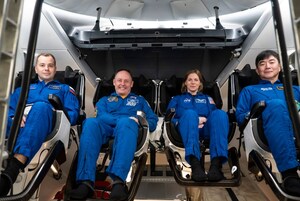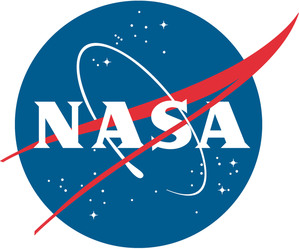
WASHINGTON, June 20, 2019 /PRNewswire/ -- NASA Television coverage is scheduled for an upcoming prelaunch activity and first nighttime launch of a SpaceX Falcon Heavy rocket, which will be carrying four agency technology missions to help improve future spacecraft design and performance.
The launch window for the Falcon Heavy opens at 11:30 p.m. EDT Monday, June 24, from historic Launch Complex 39A at NASA's Kennedy Space Center in Florida. The launch, as well as a live technology show, will air NASA Television and the agency's website.
SpaceX and the U.S. Department of Defense will launch two dozen satellites to space, including four NASA payloads that are part of the Space Test Program-2, managed by the U.S. Air Force Space and Missile Systems Center. The four payloads include two NASA technology demonstrations to improve how spacecraft propel and navigate, as well as two NASA science missions to help us better understand the nature of space and how it impacts technology on spacecraft and the ground.
Full NASA TV coverage is as follows:
Sunday, June 23
- Noon – NASA prelaunch technology TV show from Kennedy. Subject matter experts will explain each NASA mission and answer questions. Media permanently badged for Kennedy are invited to attend in person. All other media may dial in to ask questions. For dial-in information, please contact Leejay Lockhart at [email protected] or 321-861-3739 by 4 p.m. Friday, June 21.
Participants include:
- Todd Ely and Jill Seubert, interplanetary navigators at NASA's Jet Propulsion Laboratory in Pasadena, California, who are also the principal and deputy principal investigators for the Deep Space Atomic Clock. They will explain the relationship between time and navigation as well as the new space clock that could change how we navigate on the Moon, to Mars and beyond.
- Christopher McLean, principal investigator for NASA's Green Propellant Infusion Mission at Ball Aerospace, and Joe Cassady, executive director of space at Aerojet Rocketdyne. They will explain how a non-toxic fuel and new propulsion system could take the small satellite revolution beyond what it is today.
- Nicola Fox, director of NASA's Heliophysics Division, will discuss the Space Environment Testbeds and how its four experiments will reveal the ways local space weather affects spacecraft hardware.
- Rick Doe, payload program manager at SRI International, will share how two CubeSats making up the Enhanced Tandem Beacon Experiment will work with six other satellites to study irregularities in Earth's upper atmosphere that interfere with GPS and communications signals.
Monday, June 24
- 9:30 p.m. – Live NASA TV coverage begins of the return to Earth of NASA astronaut Anne McClain and two other International Space Station residents, with landing scheduled at 10:48 p.m. (Public Channel)
- 11 p.m. – NASA TV launch commentary begins ahead of the targeted 11:30 p.m. launch. NASA TV will simulcast the SpaceX STP-2 webcast starting about 15 minutes before liftoff. (Media Channel)
Prelaunch and launch day coverage will include blog updates as milestones occur:
Learn more about the NASA technologies aboard this launch:
SOURCE NASA







Share this article